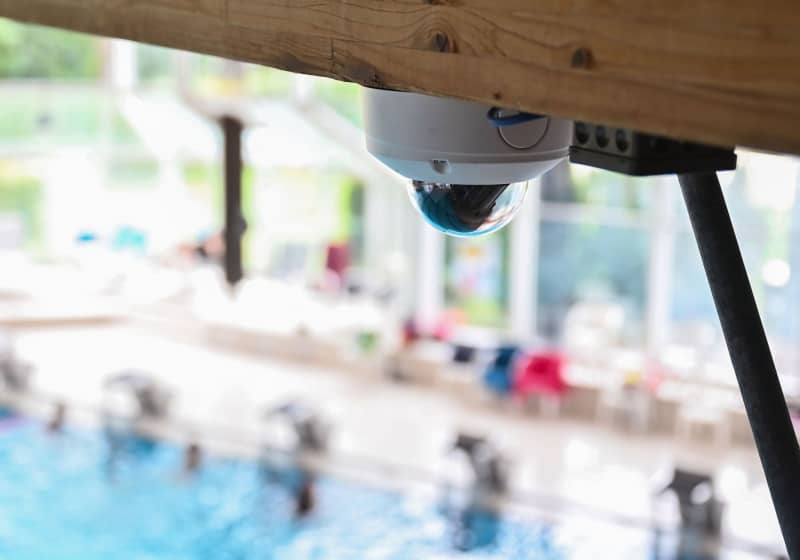Artificial intelligence (AI) is most commonly used in consumer electronics, to predict what you’ll type, help with translations, or make recommendations based on what you’ve liked in the past.
But in a swimming pool?
Lifeguards are testing the technology at swimming pools across Germany to keep swimmers safe and prevent accidents, said Necdet Mantar of a working group for public swimming pools in the southwestern state of Baden-Württemberg.
The state is experimenting with AI because of staff shortages, though he and others say the technology doesn’t compete with humans.
“It does not replace a lifeguard,” says Ursula Stiefken, manager of Panorama-Pool Freudenstadt, where AI is present.
“The system can’t jump into the water and save someone,” she said, adding that she has not saved on staff with AI.
One way it is used is to ensure that emergencies or possible drownings are reported more quickly to experts at the pool so they can respond more quickly, Mantar said.
In addition to the Freudenstadt pool, AI-based surveillance is being used at pools in Karlsruhe, said Mantar, department manager for the Reutlingen pools, about 40 kilometers south of Stuttgart. Other pool operators are still planning to try out the technology.
Positive response to pilot project
The Freudenstadt swimming pool started using AI about a year ago, using cameras to monitor the pool’s activity, such as recording the number of people and alerting staff to overcrowding.
The system is also expected to alert staff if someone is lying motionless in the water by sending a signal to a smartwatch.
The system now functions relatively reliably, says manager Stiefken. Initially, a warning was given when someone lay with their arms folded at the edge of the pool, but the system has now learned how swimmers typically move.
“Now there are significantly fewer false alarms,” she says, although so far there has been no incident where AI support has saved a life.
The reactions from the staff were positive, says Stiefken. The technology provides a certain level of safety for staff, especially when the pool is busy.
Security and data protection issues
The German Bathing Association (DGfdB) also made it clear that technical aids cannot replace water supervision, but can be a factor in determining how much staff is needed.
Other aspects include the number of swimmers, the type and size of the facility, the number, size and location of the pools and how visible they are, especially outdoors, and other features such as water attractions.
Drowning detection systems have been around for years. The new aspect of AI-enabled technology is the ability to identify specific movement patterns as dangerous before an actual emergency occurs.
But data protection also plays a role in its deployment, ensuring that the technology does not, for example, store images or link them to individuals using personal data from annual passes or membership cards.
In addition to lifeguards, watchful eyes on the waterfront can also be security guards, such as parents who watch their children.
In Hamburg, a spokesperson said that some parents cannot concentrate on their children when they are distracted by mobile phones and that lifeguards have to intervene about ten times a week and help children avoid accidents after they go unnoticed by their parents in deeper water ended up.
The staff now distributes flyers about this directly to parents and takes measures if people do not comply.
Mantar, from the Baden-Württemberg AI working group, said he has never heard of such cases but admitted: “This is a very difficult issue.”
It is entirely appropriate to remind parents of their supervisory duties for minor children and the potential dangers, he says, but notes that issuing bans or smartphone bans is legally challenging.
“We even offer free Wi-Fi at many pools. Some people work at the poolside, read their emails or catch up with friends, family and colleagues,” he says.
Staff would be completely overwhelmed if they had to monitor parents for mobile phone use, he added. Furthermore, dealing with such parents would lead to numerous and lengthy discussions that could also compromise pool supervision and endanger other swimmers, Mantar says.
One approach that the Freudenstadt swimming pool offers is to create a series of short videos on how to behave in the water.
The pool’s mascot, Flip, educates guests on proper pool etiquette. A recent video was viewed more than 6 million times and received 31,000 likes.

